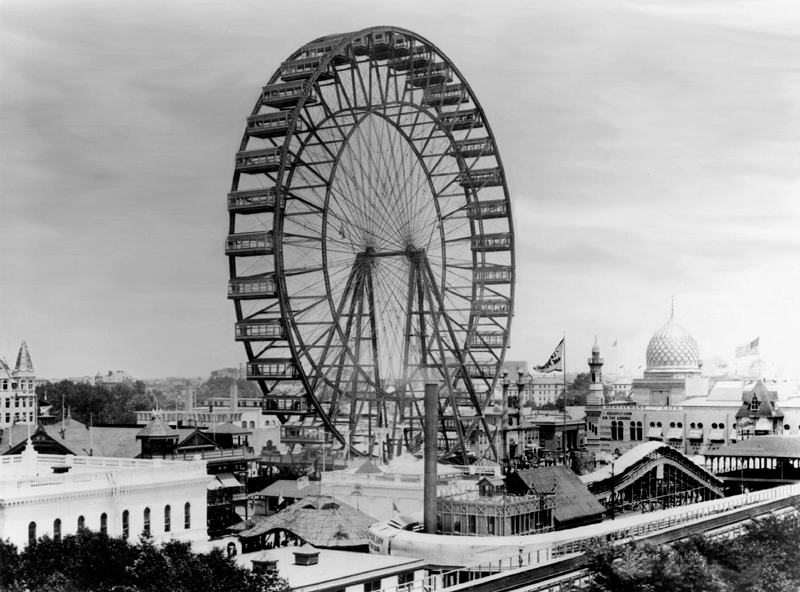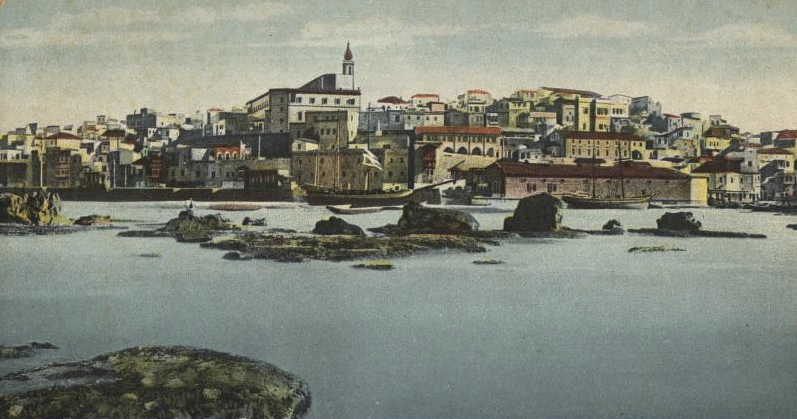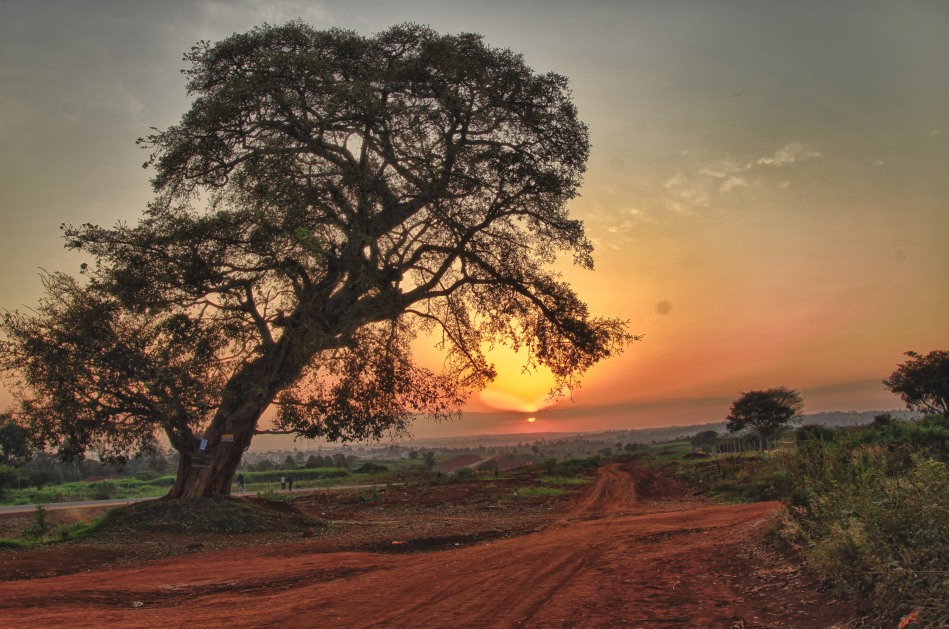Category: Fiction

March 6th, 2017 by remkodeknikker
The story of Chicago and its hinterland is one of the wildest histories of socio-economic growth you will encounter. In our time perhaps only comparable with the rapid growth of the Chinese economy and population. The story of Chicago is perhaps also the most revealing story to understand the American Dream and American Exceptionalism on one hand and the depravity of American capitalism on the other hand.
In 1830, Chicago barely did exist, but in the minds of a few so-called boosters or land speculators and a dozen early settlers. In 1840, Chicago had grown over 500% and counted a little over 4,000 settlers. Fifty years later, Chicago boasted over a million citizens and in the 1890 census had become the second largest city in the United States, after New York City. It was selected as the site for the World’s Columbian Exhibit in 1893 that commemorated the arrival of Columbus in the continent 400 years earlier, and surpassed in grandeur even the World’s Fair or Exposition Universelle of 1889 in Paris. The Chicago Exhibit became the site of the original Ferris Wheel that outdid the Eiffel Tower. Chicago had become the beginning and end station for all rail road routes in the United States, had centered the meat packing industry and the agricultural industry, but also had become the crime capital and witness to deplorable labor circumstances and exploitation. Read more of this article »
Posted in Architecture, Book Reviews, Chicago, Fiction, Non-Fiction, USA Tagged with: architecture, chicago, crime, the devil in the white city, the jungle, upton sinclair
May 21st, 2005 by David Omowale
She bathed in the bay of bitterness. An islet of granite rock, covered with barnacles, sea snails, sea-eggs and tiny crabs that scurried all over it, stood at the entrance of the bay, indifferent to the wind, indifferent to the waves that prostrated themselves at its feet and the clouds that wept copious tears of remorse. She compared the rock to her father. Silent all these years, unyielding, unforgiving. But he was dying now, of cancer, and before he died she hoped to transform this rock into flesh, free its soul from the hardness of its core, and give it voice to sing her name once again.
All these years her mother had stood by her. Her mother was her rock against the onslaught of the wave of scandal and the wind of shame. After the birth of her son, her mother took her and the child down to the bay and baptized them under the breaking waves in the shadow of an albatross that soared overhead on extended wings. It was a secular baptism, a rite of passage to a different idea of herself. She was a mother now, a woman now, innocent no more; she was no longer an adolescent girl, green and tantalizing. Her spirit had risen and become one with the albatross. She soared like a song, like a seagull. Read more of this article »
Posted in Fiction, Grenada

May 2nd, 2005 by Joe Jaffe
Fisherman Reuven (2)
The following is a sequel to the story “Fisherman Reuven” written by Joe Jaffe and published on Szirine in 2004. Read them separately for a literary delight, together for literary theater!
Beneath my house in the ancient Port of Jaffa, there is a great barrel-vaulted room in which Reuven the fisherman lived and worked. He was a colorful character, wise and knowledgeable, though I doubt if he could read. We were neighbors for more than twenty years, and during that time we developed a tangled love-hate relationship.
I supplied him with electricity from an outlet on my balcony. He needed it, so he said, to provide a small light for mending his nets at night. But he abused my generosity and connected up a refrigerator, heater and a cooker, thereby overloading the circuit. There were endless arguments over the electricity, and there were periods during which I took punitive action and disconnected it altogether.
In hindsight I know that this was unfair, because Reuven provided me with a regular supply of fresh fish and seafood. Read more of this article »
Posted in Fiction, Israel, Mediterranean
Detention-life was tasteless and all detainees felt lonely in this small world, especially once there was no handwork to do. The materials we normally used for our work hadn’t arrived and no one knew how to kill their time. So it was that one morning in March 2002, some of us were playing cards, while others read some outdated newspapers and magazines.
With a few of the more intellectual inmates, I talked about an incident that had happened at Linshui airport in Hainan province one year ago. A Chinese warplane and an American plane had crashed into each other. One of the inmates had worked at the airport as an air force mechanic two decades ago.
Suddenly people started shouting. They’d seen a mouse and immediately began trying to seize it. A few minutes later the mouse was caught and then was hung downward by a string on the steel line, which we ordinarily used to hang our damp clothing to dry. It still struggled, squeaking floundering tones, “ji, ji, ji.”
“I’ll beat you dead! Beat you dead! The police beat me as brutally as I’ll beat you,” one young man yelled waving a short plastic stick in his distorted hand.
Others started yelling and the mouse soon died from the savage beating by detainees, who found revenge in their rage at the way they had been treated themselves. The inmates began talking noisily about police torture previously undergone by them. Read more of this article »
Posted in China, Fiction
January 18th, 2005 by Yolain St. Fort
About Love and Race
“The Lord knows how to give generously, but He has no idea how to distribute things evenly among His children.” Maman often mumbled these words beneath her breath as she struggled to braid my hair.
I understood her remark perfectly, though I sometimes wished I didn’t have ears to listen, or eyes to see her disappointment. She said very often that my short, black hair was too stubborn, that my skin shade was too deep, that I was too tall, that I was too thin. The Creator must have run out of supplies when He was designing me. She didn’t mean to be hurtful, I knew. But she couldn’t help comparing me to my next door neighbor whose hair fell on her slender back, whose tender skin was the color of amber, whose eyes shone like the moon.
Maman never said it aloud, but I could imagine her thinking that the Creator must indeed have been in a delightful mood when he sketched Belle.
Belle was the envy of every young girl who lived in Lagune. Including me. She was the pride of every mother in town, though she didn’t belong to them. As they often said with a dreamy look in their eyes, Belle was the closest thing to an angel in Lagune. There were times when I wished that Belle didn’t have such a big heart. Besides dazzling beauty, Belle had a gentle, considerate nature, and a gift for drawing. Read more of this article »
Posted in Fiction, Haiti
December 20th, 2004 by Gaylord Njui Gitau
A bevy of dancers known as Ishiololo belted out, song after song, and left the audience in a trance craving for more. In line with the theme of the day, they mimicked drawing battle lines, unsheathed wooden swords and sang war songs to the crowd that had thronged the local stadium, which had seen many bulls lock horns.
This was Chemasisi, the village known more for non-performance than achievement. It was sandwiched between Ukololo hills, the home of the great god of thunder Umeme, and the habitation of Eshakala, the great god of wrath. It was well served with the great river Olmoloti, which served as the lifeline to the people: water to drink, bathing, swimming and watering points for the animals.
Chemasisi was also a battlefield and the river Olmoloti was a bone of contention between the two antagonistic gods, Umeme and Eshakala. Thunder always struck and wrath would follow in their battle for supremacy. Even the people at times would go for one another’s jugulars. Read more of this article »
Posted in Fiction, Kenya
October 25th, 2004 by Robert T. Tuohey
It was Monday morning, maybe that’s what started the fight over all the pies. Like always, everybody was sitting around the diner having a cup of coffee or a couple of eggs, getting ready for work. And, like always, nobody looked very happy about it.
Rosie was grumbling that her old man, who was out back fixing something, hadn’t cleaned the grill right. She said she wasn’t getting squat for tips that morning and it wasn’t her fault if the eggs were coming out smoky. Joann, who was sitting next to me, was agreeing with that, saying her ex-boyfriend was always a bastard about his eggs. Me, who was throwing my good eye on Joann, was agreeing with her, saying that smoky eggs could be tasty. A couple of truckers who were passing through were sitting up front bitching about the cops on I-95. Harry was hunched over his baseball scores with nothing to say, as the Reds had lost. Down the far end, Big Rick was quiet too, looking thorough his receipts book, scowling and scratching his goatee. Down the other end, as far away from Big Rick as you could sit, Dom, huge and hairy as a buffalo, was plunked down on his stool. Sitting next to Dom was his son, Eddie. The kid’s about 16, and skinny as a beanpole standing sideways. He doesn’t say much, but when he does it’s usually something goofy.
Now, the standard story is that Big Rick and Dom hate each other’s guts on purely business grounds: each guy says the other is a stinking bastard that scrounged him out of customers and so he wants to kill him. Fair enough. Other folks claim that milk had nothing to do with it, and that the bad blood between them is because both were boinking that hot number Sarah Jennings. I mean, why else would she need two milkmen, right? Well, however it was, each guy thought the other guy was plowing his tomato patch, and so finally they locked horns. It was down to ‘world famous’ Charlie-O’s one night, and legend is that sexy Sarah was waitressing. Folks that saw it said it was like a hurricane that started in the bar, flew out onto the sidewalk, then went ripping down Main Street. I suppose that one’s a stretcher, but even the next day’s newspaper said how those two put a whole shift of cops in the hospital. Read more of this article »
Posted in Fiction, USA
October 4th, 2004 by Stoyan Valev
Translated from Bulgarian by: Ivailo Dagnev
“And what happened in the end?”
No reply.
Silence froze again over their heads like a crystal chandelier, threatening to fall down any second. He had noticed, on evenings like this one, that questions like shark fins surface unexpectedly.
There is something mystic in the hours before the New Year. It is as if we listen for the first time to the whispers of time. We even realize that it robs us, if we perceive it as sand in an hourglass, trickling away incessantly. But time does not move, it has been frozen for quite a while; we are the ones who keep changing. Yet, we donít want to admit it. We are crucified on its frozen face.
Evenings like this one are lustfully predisposed to foul silence. You just sit and watch how questions take you by surprise. In order to answer them you have to turn your pockets inside out, look into every corner of every moment. Actually, are answers possible at all? Spiridon sighed. Aren√ɬ≠t they just the other side of questions? Read more of this article »
Posted in Bulgaria, Fiction

September 20th, 2004 by Elizabeth Mumbi Waichinga
Mugumo is the name of a special sacred tree known to the Kikuyu community and many others in Kenya. Its name was inherited from the ancestors, and the ancestors inherited it from their ancestors.
For some reason, the holiness of this tree has survived the ages. Even a cultural invasion by foreigners -which Mugo Wa Kibiro prophesied about and influenced the dress code of the natives and gave them a foreign language- didn’t destroy the sacredness of the Mugumo tree. Several theories have evolved about this indigenous tree.
Some natives believe that going around this tree seven times would automatically change one’s sex. But no one has ever experienced this transformation. Others believe spirits of the ancestors and the living dead hover around this tree. In fact some have claimed to have heard and recognized voices of departed relatives.
Mugumo is a rare tree found only in big forests like Mount Kenya. The Kikuyu community inhabiting the slopes of mount Kirinyaga, which has since been renamed Mount Kenya, considers this tree their shrine. They use it to commemorate their land’s independence. Read more of this article »
Posted in Fiction, Kenya



